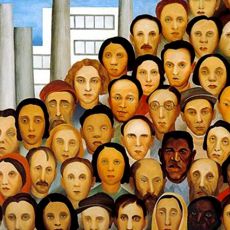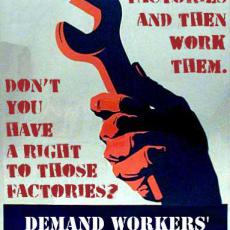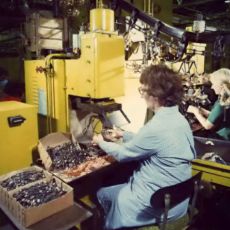Self-management, Social Reappropriation and the Commons
It is necessary to encourage all members of society who have an interest in the business’s activity (clients, users, environmental protection associations) to participate in its governing process.
I would like to start by examining the latter of these three notions, first exploring its meaning in the singular sense. The ‘common’ should be understood as a political principle whereby there is no shared accountability without co-participation in the same activity: simply being a member of a specific group (be it a family, a nation, a certain ethnicity, etc.) is not enough. It is this very principle that inspired the backlash against representative democracy seen amongst movements in recent history that have occupied squares (the Indignés movement as well as the Gezi Park and Taksim Square protests, to name but a few). These kinds of movements create a link between the demands of a ‘real democracy’ and those of self-governed ‘commons’ (notably turning urban spaces into living spaces).
On a broader scale, ‘commons’ do not refer to the resources taken in their own right but to the ongoing link that exists between a thing (a natural resource, knowledge, a cultural space) and the activity carried out by the community in charge of managing, maintaining and protecting it. The commons thus allow a space – one that exists beyond the notion of state or private property – to be created that is reserved for collective use and that cannot be appropriated: in this sense, the Common is instituted with a view to being used as such, to the extent that the space itself and the purpose for which it is used should both be removed from all notions of ownership, regardless of its form.
If the political principle that is the commons is to be implemented as part of the governing process for all commons, it is necessary to set ‘socio-professional’ commons apart from commons that are strictly political. While the latter are normally instituted on a purely territorial basis (within a municipality, a region, a country, etc.), socio-professional commons are influenced by the object or place that they take responsibility of. However, regardless of the situation, they are always invariably socio-professional and never purely professional. Strictly professional commons cannot exist due to the implications of the commons’ very existence: the act of pooling resources must incorporate all those who, in one way or another, are affected by the preservation and protection of the object or resource at hand, regardless of strict professional boundaries. A common does not need to operate in the same way as a trade union; it needs to integrate its own link to the ‘society’ (of which it is an integral part) into its organisational structure.
This particularly applies to the institution of businesses. Civil law only defines ‘society’ as a ‘common enterprise’. The time has come to turn this latter notion into action: business itself needs to become part of the commons. To this end, we need to enforce two inseparable requirements: the first is the creation of a democratic element within the business and the second is to forge a relationship between the business and the rest of society.
With regard to the first notion, it is important to set down a general rule: no work task will be executed without the equal participation of everyone in the decision-making process. This rule is nothing but a simple translation of the commons principle into a corporate setting, applying it to the realm of production. Placing added focus on the importance of collective decision-making brings us back to the requirement for a business’s self-governance. Here ‘self-government’ is favoured over ‘self-management’ insofar as ‘self-management’ can imply that effective management is in the hands of people other than those tasked with ‘managing’.
In terms of the second notion, it is necessary to take into account all of a business’s social interactions in such a way as to integrate the effects (both direct and indirect) production has on the rest of society into decision-making processes. It is thus necessary to go beyond the only salaried employees and encourage all members of society who have an interest (in whatever capacity) in the business’s activity (clients, users, environmental protection associations) to participate in its governing process. In this respect, the idea of ‘social property’ is ambivalent in the sense that it may suggest a closed community of paid workers or producers who alone are responsible for making all decisions. Here it would be better to speak of a ‘social appropriation’ to indicate the determination of all those actors involved in propelling the business towards a more social model.






Comments
Post new comment